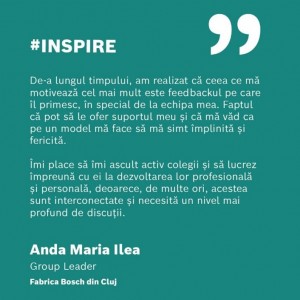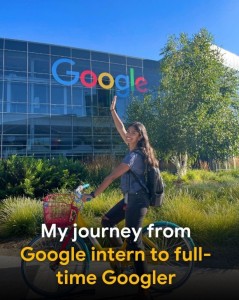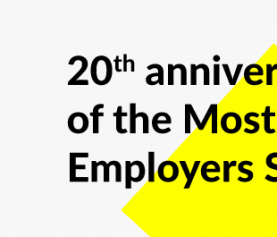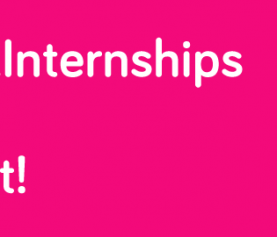Employer Branding has gained significant recognition in recent years in Romania, becoming a strategic cornerstone for leading companies. It plays a critical role in strengthening organizational image and facilitates talent attraction and retention by highlighting corporate values and culture.
By using a data-driven employer branding methodology and our 19 years of local expertise, we advised more than 500 companies, supported them in building strong(er) employer brand and helped them to communicate their EVPs towards both current and future employees. We are the catalyst for change, accompanying you throughout the process of defining and enhancing your employer brand.
What is Employer Branding?
Employer Branding is a complex process involving multiple stages, from internal analysis of organizational culture to assessing external perceptions of the company as an employer. Its primary objective is to create an appealing and authentic image for potential candidates.
The Importance of EVP (Employer Value Proposition)
The EVP defines the employer’s promise to employees, encapsulating the essence of the experience offered within the company. Developing an effective EVP can be achieved through a detailed research process or by adapting a global EVP to local market specifics.
A well-crafted EVP contributes to:
- Talent Attraction: Positioning the company as a preferred employer in a competitive market.
- Employee Retention: Enhancing loyalty and satisfaction among employees.
- Employee Engagement: Promoting a strong organizational culture and fostering trust-based relationships.
Structure of an Effective EVP
An effective Employee Value Proposition (EVP) must be well-structured and balanced to attract, retain, and motivate the right employees. Here’s a breakdown of each essential component:
- External Market Trends. Key factors to consider:
- Work flexibility requirements (remote, hybrid work).
- Competitive compensation and benefits packages.
- Opportunities for professional growth and work-life balance.
- Commitment to diversity, equity, and inclusion.
It is crucial to analyze how competitors position their EVP and identify unique differentiators.
- Internal Company Culture.
The EVP must reflect the company’s values, mission, and employees’ real experiences. Essential elements:
- Work environment (collaborative, innovative, traditional, etc.).
- Leadership and management style.
- Feedback culture and professional development support.
- Recognition and rewards for performance.
It is important for the EVP to be authentic and not create false expectations for candidates.
Strategic Business Goals. The EVP must align with the company’s long-term strategy and growth direction. Key aspects to consider:
- How the EVP supports attracting the right talent to achieve business objectives
- Ways in which the EVP enhances employee engagement and retention.
- The compatibility between the values promoted in the EVP and the company’s long-term goals.
A well-crafted EVP fosters a mutual commitment between the employer and employees, ensuring both organizational success and workforce satisfaction.
EVP Communication Channels
To ensure an effective communication strategy, an Employee Value Proposition (EVP) must be consistently promoted across various channels to engage both current employees and potential candidates. Below is a detailed breakdown of the key channels for EVP communication:
- Internal Communication: Enhancing engagement among current employees.
- External Communication: Strengthening the company’s image among candidates.
- Employee Ambassadors: Leveraging authentic employee stories to humanize the brand.
3 CASE STUDIES: Best Practices in Employer Branding
We have chosen to present the following three case studies either because they are companies, we actively collaborate with in the field of employer branding or because they have valuable stories about their colleagues and organizational culture that deserve to be known.
1. Bosch Romania
Bosch has structured its communication around three essential pillars:
- Grow: Career development opportunities.
- Enjoy: Organizational culture and employee benefits.
- Inspire: Leadership and innovation.
These pillars are integrated into their communication strategy through consistent social media campaigns and by promoting employee stories. Additionally, the hashtag #LikeABosch is used to align the product brand with the employer brand.
2. Google
Google employs a dynamic, flexible, and adaptable EVP with messages such as:
- Build for everyone
- Design for everyone
- Create for everyone
- Code for everyone
This dynamic model enables them to attract talent and establish an authentic connection between the company and its employees. The “Google Careers” platform and LinkedIn profile are effectively utilized to structure information and promote authentic employee stories. Moreover, the “Day in the Life” video format offers real insight into the life of an employee.
3. Netflix
Netflix demonstrates a strong commitment to its organizational culture, encapsulated in the EVP “Freedom and Responsibility.” It emphasizes:
- Innovation and Transparency: Minimizing bureaucracy.
- High Performance: Creating a trust-based and autonomous environment.
Their “Culture Deck” document serves as a reference point, clearly outlining how the principles of EVP are applied in practice. Their careers platform and social media channels are used to ensure consistency between promises made to candidates and the experiences delivered to employees.
In an economic landscape dominated by technology and automation, the human component of Employer Branding remains essential. A well-defined and strategically implemented EVP enables companies to attract, inspire, and retain top talent, contributing to long-term success.
Let’s work together! Drop us a line at angajatori@catalyst.ro
By Andreea Lazarescu – Talent Attraction & Employer Branding Consultant at Catalyst Solutions.
With over 7 years of expertise in developing strategic recruitment and employer branding solutions, Andreea Lazarescu has collaborated with over 100 clients, providing tailored consulting services to enhance their talent acquisition efforts. Her passion for Employer Branding, combined with her strategic mindset and industry expertise, makes her a valuable partner for organizations looking to attract and retain top talent.













